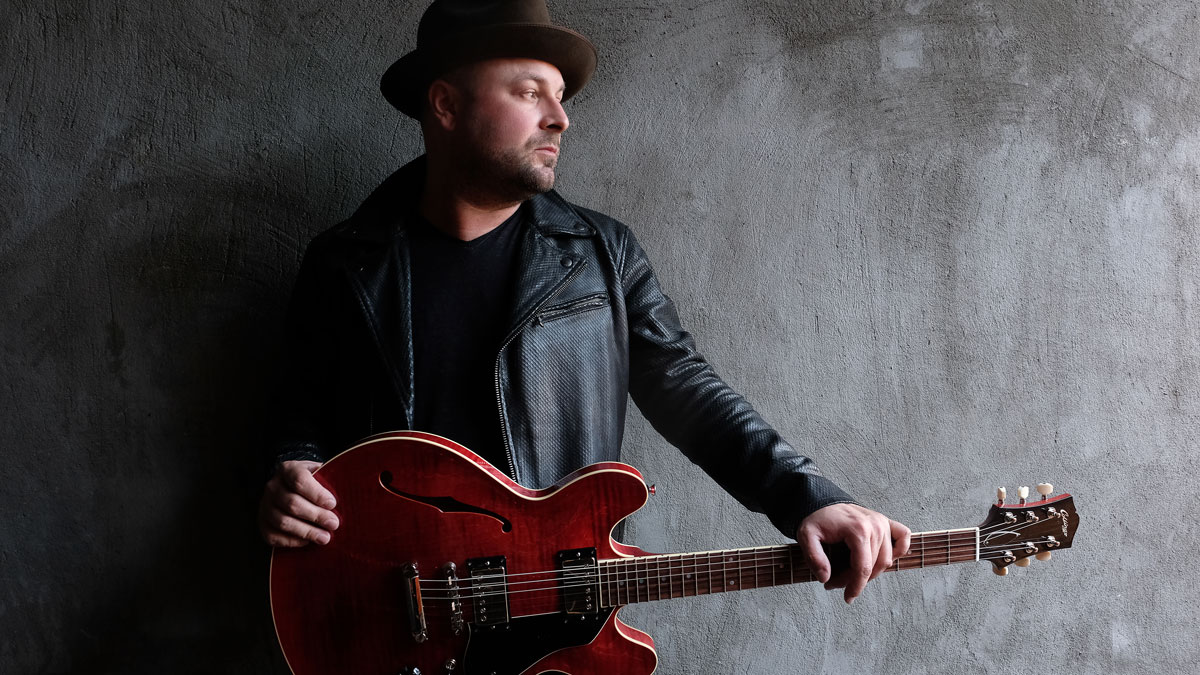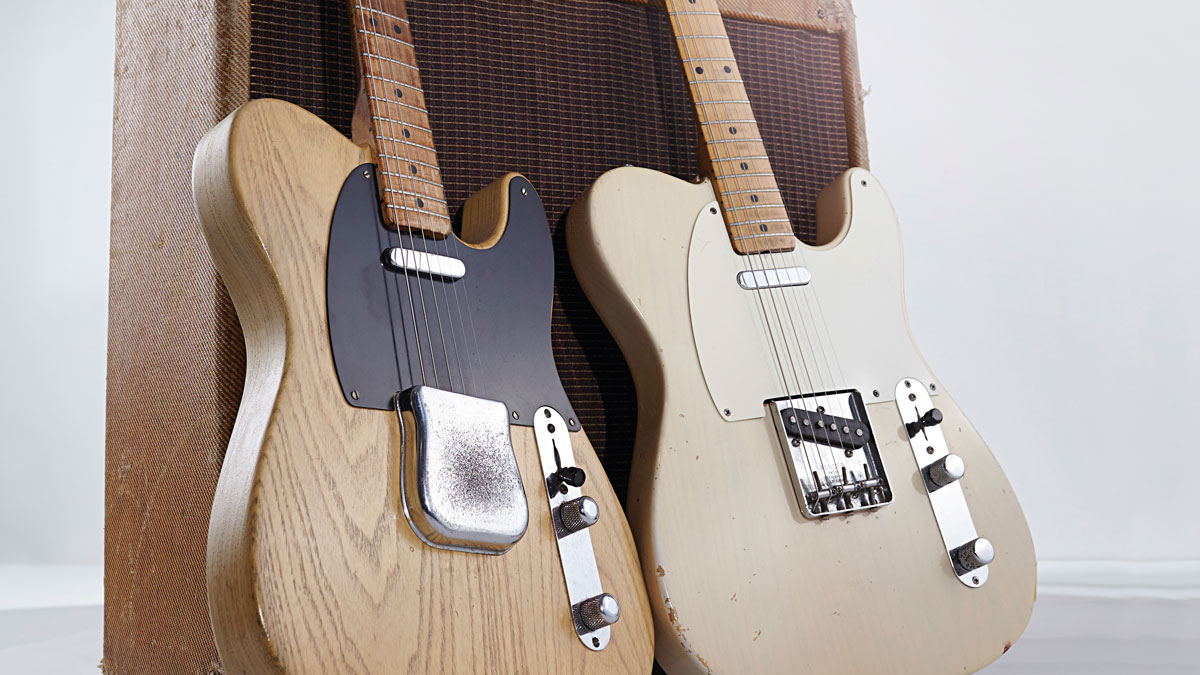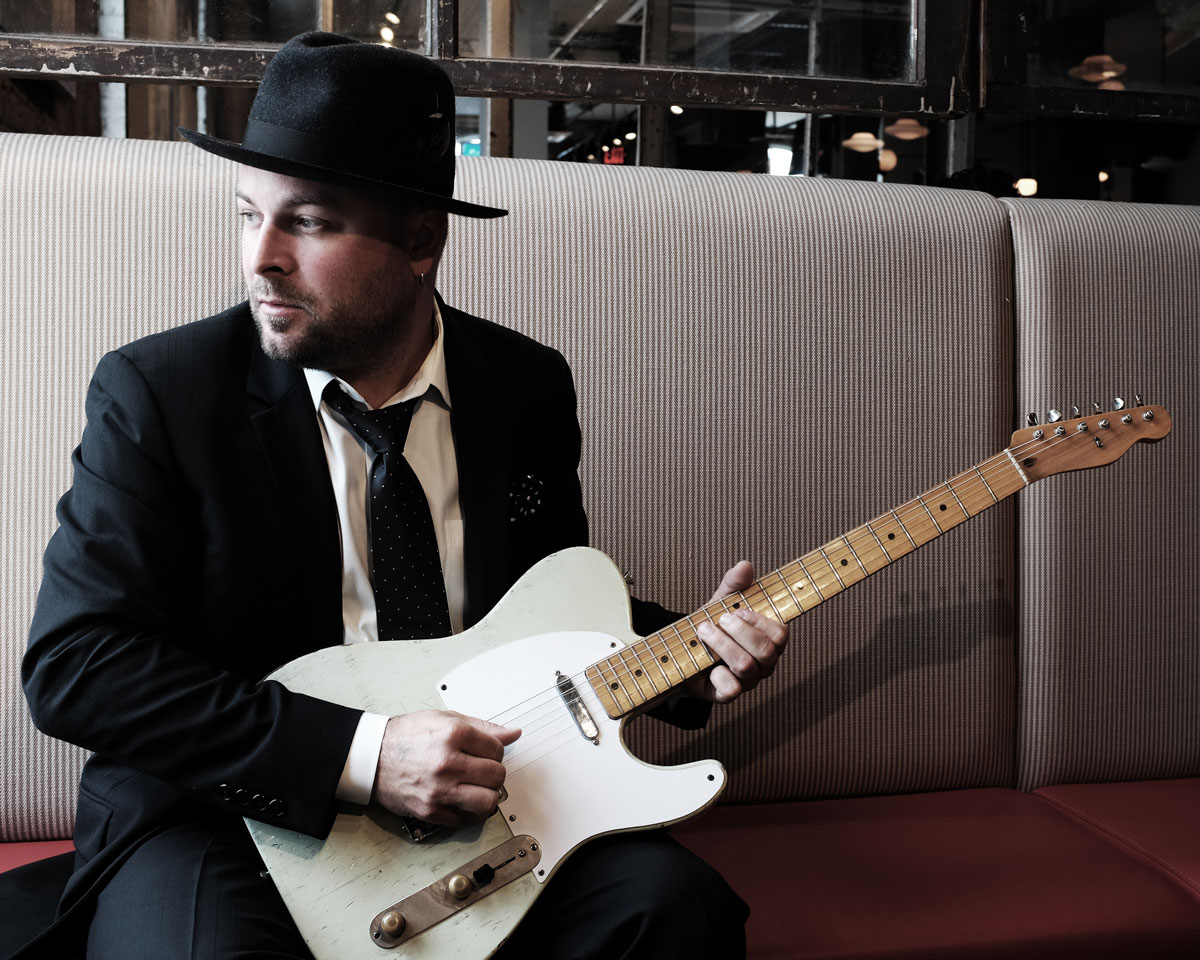Nashville session ace Guthrie Trapp’s top 5 tips for guitarists: "Don’t overplay. Always let somebody else ask you to ramp up"
Guitarist for the likes of Garth Brooks and John Oates shares six-string wisdom

Guthrie Trapp likes to let it rip. His life has taken him from cutting his teeth playing guitar as a youth in Flora-Bama all the way to the biggest stages sidemanning for John Oates and top of the line recording studios as a session musician on critically acclaimed albums.
The success of his journey has often relied on his ability to deliver clutch performances when the pressure is the highest and the conditions aren’t always ideal.
Being able to pull out a seemingly never ending string of innovative musical ideas coated with worn in musicality from his bluegrass-influenced upbringing has earned Trapp a reputation as the real deal among the Nashville musician community.
Trapp has been revisiting those roots, and his new album Life After Dark is the culmination of calling back to his early years. He also brought in some of the most talented musicians in the world to help him capture the vibe.
Drummer Pete Abbott and legendary Nashville session bass player Michael Rhodes (who can be seen and heard playing with Joe Bonamassa) formed the rhythm section for some of the tracks, while others featured session kings Fred Elteringham on drums and Glenn Worff on bass. Steve Mackey and Jerry Navarro also played a part in the rhythm section on Life After Dark.
“With this record I scheduled everything within a four-day period, maybe five,” Guthrie says. “I knew what I wanted to do, and I knew if I hired those guys to play on these songs it was going to turn out good - and we wouldn’t have to think about it a whole lot.”
Having acoustic sensibilities and dynamics translates over into the electric… If you play bluegrass as a kid, it definitely helps your electric guitar playing
The album was cut live, without any dead-horse-beating when it came to overdubbing or “fixing” tracks like many records are susceptible to. Trapp’s goal for recording these songs was to hire different friends that are musically talented, let them play, and capture it.
Want all the hottest music and gear news, reviews, deals, features and more, direct to your inbox? Sign up here.
Certainly, this album has no shortage of talented musical accomplices; bluegrass royalty Sam Bush (mandolin) and Stuart Duncan (fiddle) accompany Trapp’s acoustic flatpicking on Crossing The Bridge.
When asked about the reason bluegrass musicians accept him into their circle, even when he’s playing electric guitar, Trapp responds, “Part of the reason is because I’m not coming from a rock background. I love to rock, but I was raised listening to bluegrass and new acoustic music while at the same time playing electric guitar.
“I think having those sensibilities and dynamics with that music translates over into the electric, and I know it helps my chops because of the down-up-down-up picking technique. I think if you play bluegrass as a kid, it definitely helps your electric guitar playing.”
A cover of the George Jones song You’re Still On My Mind features country legends Vince Gill on lead vocals and Paul Franklin on pedal steel.
When asked if it was recorded at Vince’s epic home studio, Trapp responds “I wanted to record it at his house, but he got too busy with the Eagles!”
“Now I asked him when we talked on the phone,” Trapp continues, “I said, ‘Hey, man, would you play the guitar and sing on this?’ and he said, “Man, you’ve got the guitar covered, but it would be great to hear some steel guitar on it,’ and I was already thinking of getting Paul. That was just a perfect marriage, Vince and Paul, because those guys have been working together forever. They’re so tight.”
Another talented friend of Trapp’s is Charlie Worsham, Warner Music artist and multi-instrumentalist extraordinaire. Trapp invited Worsham to sing on Oh Lonesome Me.
“It’s a unique song, not like anything else. I thought this would be a fun thing to play, fun thing to solo over, and I just like the song, so why not get Charlie? He agreed to do it and we just got him over here to sing it. It was so easy.”
With any kind of fast train beat song, you’re basically trying to put yourself in positions where you won’t paint yourself into a corner. You have to do something musical, and you have to do something in time
A special track for Trapp is Lieper’s Fork, written by a friend that Trapp used to play with a long time ago named Gove Scrivenor.
“He was actually the guy that brought me to Nashville for the first time when I was 16 or 17,” Trapp recalls.
Trapp plays acoustic guitar and mandolin on the song, and is joined by bluegrass powerhouse Mike Bub on upright bass and Stuart Duncan again on fiddle, with rhythm guitar being played by Todd Lombardo, a guitarist with original music and local acclaim among the creative community himself.
Guitarists will latch onto instrumental songs Commodity and Shag Rug Burn - in particular, the signature lead lick in Commodity is a huge-sounding array of harmonies that might convince you there were multiple guitarists in the recording.
“It’s just one guitar,” Trapp says, “but it’s a multiple string melody. Some of it is full chords doing the melody. The reason I did that is so it would have a fatter sound. If I showed you on the guitar, it’s super-simple.”
Shag Rug Burn, on the other hand, has some of the slipperiest lead licks since the other Guthrie’s Wonderful Slippery Thing.
“It’s actually the same lick in three octaves,” says Trapp.
“It wasn’t a conscious decision of wanting to come up with a lick. I think I played the lick and then thought ‘Well, that’s kind of cool. If I did it here and over a couple different octaves I might have a little bit of a song idea there!’”

Essential gear for country guitar - part 1: electric guitars
Got My Mojo Workin, meanwhile, features a guitar solo that sounds like a Brent-Mason-inspired flurry of notes, but with the dark, thick Tele tone Guthrie is known for.
“I’ve played that song a lot in my life, and it’s a blues song that was recorded by Muddy Waters. But that two-beat kind of feel makes me want to start chicken pickin on the guitar!”
“With a tempo like that or any kind of fast train beat song, you’re basically trying to put yourself in positions where you won’t paint yourself into a corner. You have to do something musical, and you have to do something in time, you want to do something soulful and creative, but you have to let your experience and knowledge of the guitar take over, because you can’t think that fast.”
“Try to come up with something creative, try to groove, don’t fall on your face. Turn your mind off and let it rip.”
And with that in mind, here are Guthrie’s top five tips for guitarists…

1. Get into as many styles as you enjoy
“There are a lot of reasons to do this. It’s going to be more musically satisfying for you to be able to have the freedom to play different styles. And you’re going to work more.
“I might be able to do a bluegrass gig, or a jazz gig, or a blues gig, or a country gig, whatever. But if I’m only honing in on one style or if I’m copying Stevie Ray Vaughan my whole life then I’m just going to be another guy that sounds kind of like that.
“But I would say being diverse and well rounded will lead to you working more and having more freedom on your instrument.”
2. Play for the song
“All of these licks, all of these tones, all of these effects, and scales, at the end of the day it all comes down to what song you’re playing. And if you’re backing up an artist, you’ve really got to hone in on how important it is to just know how to play a song.
“Know how to have the right instincts to play the right stuff on the right style of music. That’s a big one. Nashville will really make you think about how important songs are.”
3. Keep hold of your cash
“If you get a chance to make a bunch of money, save as much of it as you can.”
4. Don't overplay
Always leave someone wanting more. There are guys that have had whole careers leaving you wanting more
“Always leave someone wanting more. There are guys that have had whole careers leaving you wanting more. Ry Cooder and Mark Knopfler are some of them to me. They’ve played guitar their entire lives, but they always leave you wanting to hear a little bit more.
“I think that’s a good quality to have. Don’t overplay. Always let somebody else ask you to play more or turn up. You really don’t want to be in the position where someone’s telling you to play less or turn down. It’s way better to be able to ramp up than to have to ramp down.”
5. Keep your gear in check
“Take pride in your gear, make sure it’s good and working. Strong pedalboards and amps and guitars that are playing in tune. You don’t want to show up to a gig or a session with unsatisfactory gear that’s making noise. You’ve got to keep your standards really high for your playing and your sound.”
“You want to make sure you’re easy to work with and that you’re showing up with a really positive attitude. That can carry you in any line of work you're doing.”
Guthrie Trapp's Life After Dark is available now. You can also see him on tour with John Oates, and you can hear his guitar sounds all over Oates’ critically acclaimed new release Arkansas.
MusicRadar is the number one website for music-makers of all kinds, be they guitarists, drummers, keyboard players, DJs or producers...
- GEAR: We help musicians find the best gear with top-ranking gear round-ups and high-quality, authoritative reviews by a wide team of highly experienced experts.
- TIPS: We also provide tuition, from bite-sized tips to advanced work-outs and guidance from recognised musicians and stars.
- STARS: We talk to musicians and stars about their creative processes, and the nuts and bolts of their gear and technique. We give fans an insight into the craft of music-making that no other music website can.
